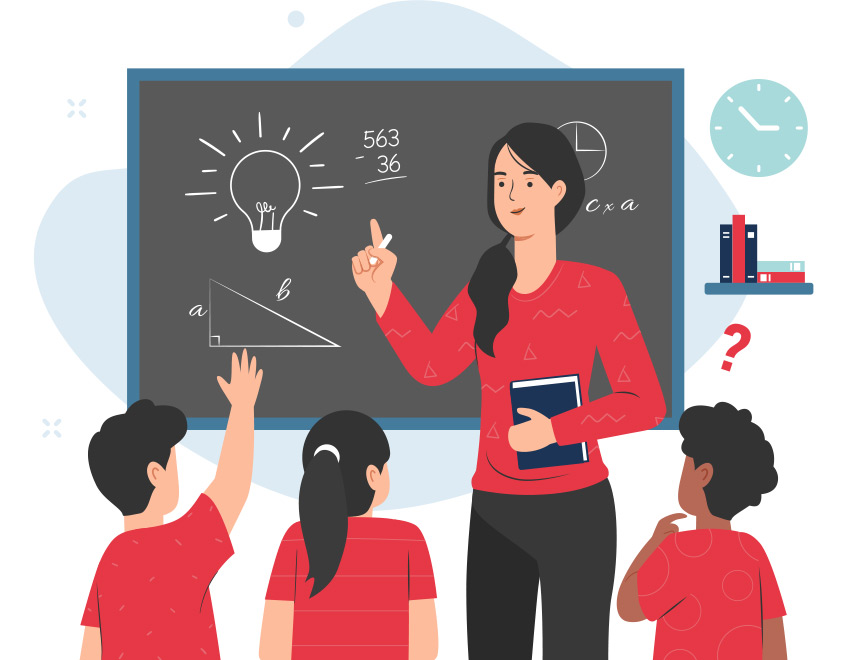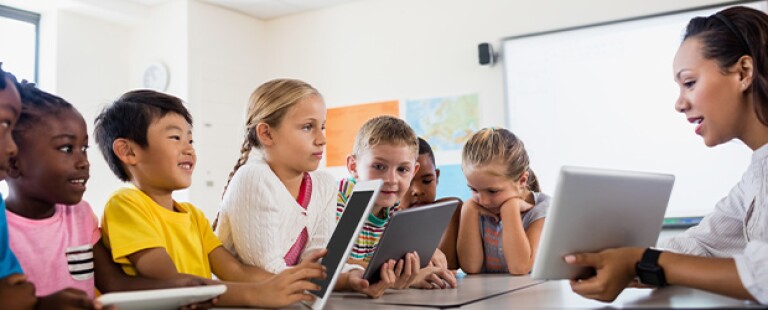Improve Your Child’s Performance with Primary Science Tuition Singapore
Improve Your Child’s Performance with Primary Science Tuition Singapore
Blog Article
Exploring the Different Training Strategies in Primary Science Education Today
Inquiry-based understanding, hands-on experiments, and the assimilation of modern technology are redefining exactly how instructors engage young minds. Additionally, collaborative approaches and separated instruction are being used to provide to the varied requirements of pupils, improving both engagement and understanding.
Inquiry-Based Understanding
Inquiry-Based Knowing (IBL) is an instructional method that urges students to check out clinical concepts via doubting, examination, and hands-on trial and error. This method stresses the role of trainees as energetic individuals in their discovering, advertising vital reasoning and problem-solving abilities. By involving with real-world questions, trainees come to be interested and motivated, which improves their understanding of clinical principles.
In IBL, teachers serve as facilitators, leading pupils as they navigate their questions instead of providing details directly. This student-centered method permits distinction, fitting different finding out designs and rates. Trainees establish skills in formulating hypotheses, creating experiments, and assessing information, which are critical for clinical literacy.
Furthermore, IBL fosters partnership amongst pupils, urging them to share findings and ideas. This collective questions promotes social abilities and a sense of community within the classroom. In addition, the procedure of query urges strength, as trainees discover to welcome failing as a tipping rock towards understanding.
Hands-On Experiments
Hands-on experiments are an essential part of efficient scientific research education and learning, enhancing the principles of inquiry-based knowing. These experiments enable trainees to involve directly with scientific principles, promoting a deeper understanding via experiential knowing. By controling materials and observing results, young students can understand abstract concepts in tangible means.
Such activities promote vital thinking and analytical skills, as students hypothesize end results, conduct experiments, and evaluate results. This procedure encourages them to ask inquiries, refine their understanding, and create a scientific state of mind. Hands-on experiments can be customized to diverse understanding styles, ensuring that all students have the chance to involve meaningfully with the material.
In addition, hands-on experiments frequently urge cooperation amongst peers, promoting teamwork and communication abilities. Operating in teams allows pupils to share concepts, talk about findings, and gain from each other, which improves their overall instructional experience.
Incorporating hands-on experiments into the main scientific research curriculum not only enriches the learning atmosphere yet also cultivates a lifelong rate of interest in science. By actively taking part in their education and learning, pupils are most likely to develop an enthusiasm for scientific inquiry that expands past the class.

Innovation Assimilation
Incorporating modern technology right into primary scientific research education and learning has ended up being significantly vital in promoting student engagement and improving discovering results. The usage of digital devices, such as interactive simulations, online laboratories, and instructional software, provides pupils with opportunities to explore scientific ideas in innovative methods. These resources assist in a deeper understanding of intricate topics by allowing students to picture and control variables that would certainly be not practical in a traditional class setting.
Furthermore, technology integration urges customized learning experiences. Pupils can proceed at their own pace, taking another look at difficult ideas via multimedia resources, which satisfy different discovering styles. This adaptability not just sustains specific growth yet also grows a sense of freedom in learners.
In addition, innovation offers as a bridge to real-world scientific research, attaching pupils with present study and professional contributions. Accessibility to scientific journals and on-line databases expands pupils' point of views on clinical inquiry and cultivates crucial thinking abilities.
Collaborative Learning
Collective learning plays a vital duty in main scientific research education and learning by promoting team effort and interaction abilities amongst trainees. This technique encourages learners to collaborate, share understanding, and participate in problem-solving, which improves their understanding of clinical principles. By taking part in group activities, trainees discover to express their ideas, listen to diverse viewpoints, and bargain options, every one of which are important skills in both academic and real-world contexts.

Research study shows that collaborative knowing can bring about raised inspiration and involvement in science subjects, as students discover satisfaction in shared experiences (primary science tuition Singapore). In addition, this approach prepares trainees for future joint undertakings, furnishing them with the abilities necessary for efficient synergy in college and professional atmospheres. Inevitably, embracing joint understanding in primary science education and learning can considerably enrich the understanding experience and promote a deeper understanding of scientific query
Distinguished Guideline

Separated direction can materialize in different methods, such as differing the material, procedures, or items of learning. Instructors may use tiered tasks that supply varying levels of complexity, permitting pupils to function at other their corresponding preparedness levels. Additionally, adaptable organizing approaches can promote cooperation among students with various capabilities, promoting peer discovering.
Analysis plays a vital function in this technique, as it notifies instruction and aids teachers understand each trainee's special requirements. Formative analyses, such as quizzes and monitorings, can direct educators in changing their techniques to improve learning end results. primary science tuition Singapore. Ultimately, by implementing set apart guideline in main scientific research education, instructors can cultivate an extra equitable and efficient learning setting, encouraging all students to reach their full capacity in understanding scientific sensations
Verdict
In summary, the varied training approaches in key science education, consisting of inquiry-based learning, hands-on experiments, innovation combination, collaborative knowing, and set apart instruction, collectively add to a much more efficient learning atmosphere. These approaches advertise essential thinking, problem-solving skills, and a much deeper comprehension of scientific principles. By executing these approaches, educators can create interesting and encouraging classrooms that address the varied requirements of trainees, eventually promoting a long-lasting rate of interest in science and enhancing academic achievement.
Inquiry-Based Knowing (IBL) is a pedagogical technique that urges pupils to discover clinical ideas with questioning, investigation, and hands-on experimentation.Collaborative understanding plays an essential role in primary scientific research education and learning by promoting teamwork and communication skills among students.Study shows that collective learning can lead to increased inspiration and interaction in science subjects, as students find enjoyment in common experiences.In promoting an inclusive understanding setting, separated instruction emerges as a crucial approach to fit the varied demands and abilities of pupils in key scientific research education and learning. Inevitably, by carrying out separated instruction in key science education and learning, teachers can cultivate an extra equitable that site and efficient knowing atmosphere, equipping all pupils to reach their full possibility in understanding scientific sensations.
Report this page